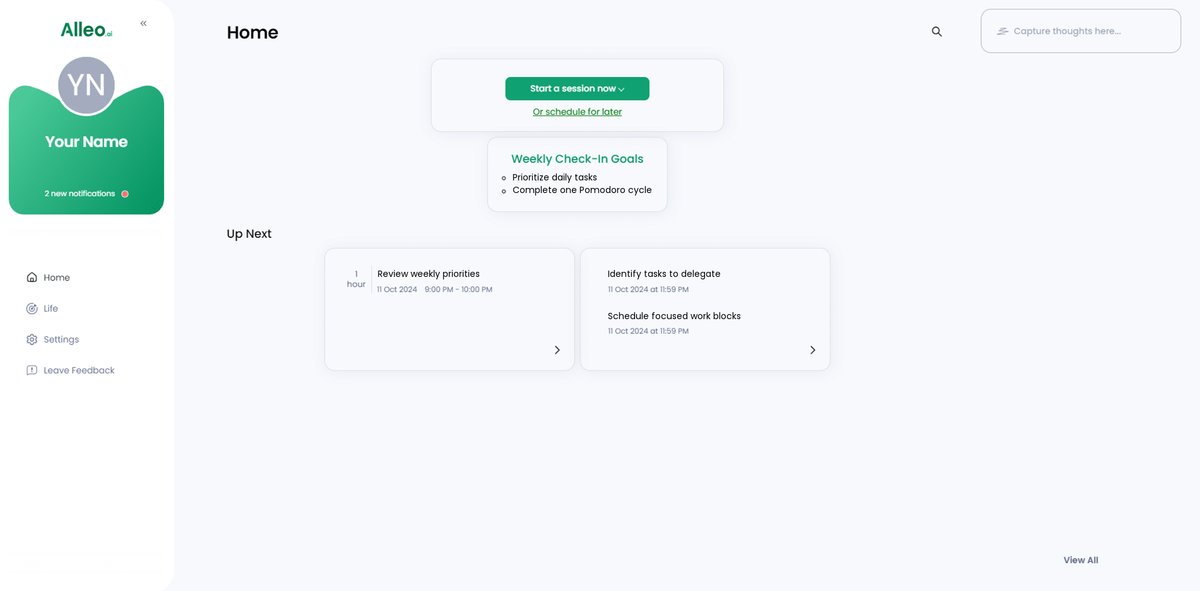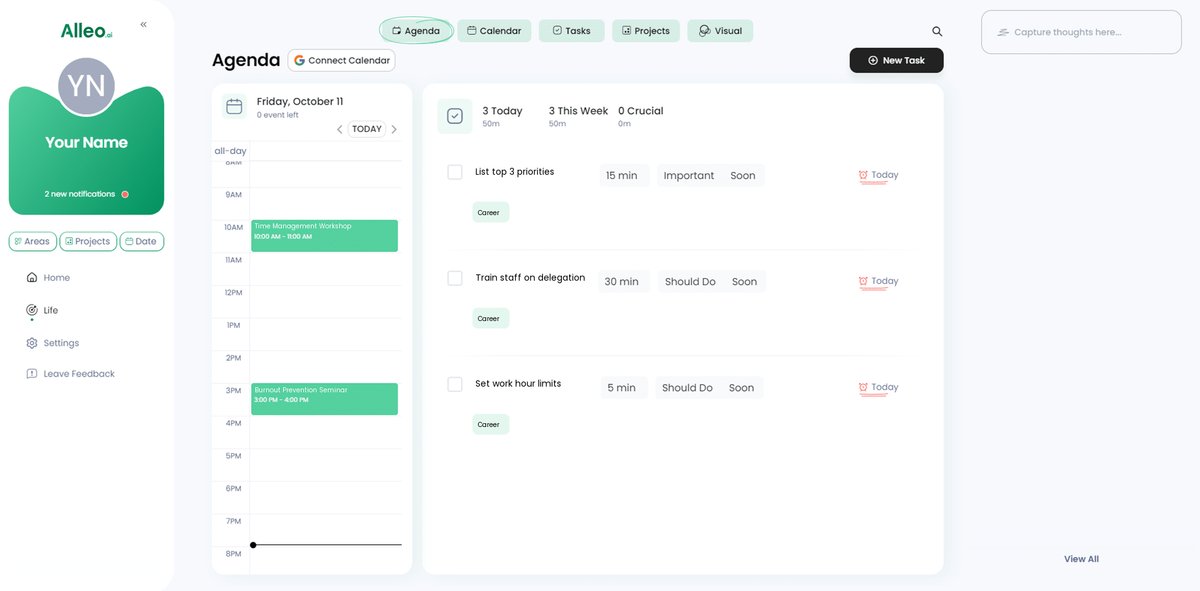Time Management Mastery for Healthcare Professionals: Strategies to Conquer Burnout
Are you overwhelmed by the constant demands and long hours in healthcare? Time management for healthcare professionals is crucial in today’s fast-paced medical environment.
As a life coach, I’ve helped many professionals navigate these challenges. I know firsthand how crucial effective time management is to prevent burnout and maintain work-life balance for nurses and doctors alike.
In this article, you’ll discover actionable strategies like daily priority task scheduling and the Pomodoro technique. These methods will help you manage your time without disrupting patient care. We’ll explore productivity hacks for medical staff and efficient patient care workflows.
Let’s dive in to these time management techniques for healthcare professionals.

The Growing Burden on Healthcare Professionals
As healthcare professionals, the demands on your time and energy are constantly increasing. Poor time management for healthcare professionals can lead to significant problems, including burnout and decreased well-being.
In my experience, many clients initially struggle to balance their workload and personal time, highlighting the need for effective scheduling techniques for doctors and nurses.
The consequences of burnout are severe. Reduced professional efficacy and personal well-being can impact patient care and your career satisfaction. Healthcare professional burnout prevention is crucial for maintaining efficient patient care workflows.
With the lack of effective, non-intrusive tools, managing your time seamlessly can seem impossible. Digital tools for medical time management can help address this challenge.
I often see clients benefit from structured time management strategies. These methods can help you stay efficient without compromising the quality of patient care, incorporating productivity hacks for medical staff and prioritization skills in healthcare settings.
Let’s explore actionable solutions to tackle these challenges and improve time management for healthcare professionals.

Effective Strategies to Manage Time for Healthcare Professionals
To overcome these time management challenges, healthcare professionals can focus on these key steps:
- Implement daily priority task scheduling: List your top tasks and block time for them, enhancing productivity for medical staff.
- Use the Pomodoro technique for focused work sessions: Work in 25-minute intervals with breaks, an effective scheduling technique for doctors.
- Delegate non-critical tasks to support staff: Assign routine tasks to your team, improving task delegation in medical practices.
- Set boundaries and learn to say no effectively: Define your work hours and decline additional tasks, promoting work-life balance for nurses and preventing healthcare professional burnout.
Let’s dive into these time management strategies for healthcare professionals!
1: Implement daily priority task scheduling
One of the most effective ways for healthcare professionals to manage their workload is by implementing a daily priority task schedule, a crucial time management technique for healthcare professionals.
Actionable Steps:
- List your top 1-3 tasks: Use a planner or digital tools for medical time management to list the most important tasks each morning.
- Allocate time slots: Block specific times in your calendar for these tasks to ensure uninterrupted focus, enhancing productivity for medical staff.
- Review and adjust: Reflect on completed tasks at the end of the day and adjust priorities for the next day, improving prioritization skills in healthcare settings.
Explanation:
Implementing a daily priority task schedule can significantly improve your efficiency and reduce stress. By focusing on the most urgent tasks and allocating specific times for them, you can ensure that critical responsibilities are addressed without interruptions, contributing to efficient patient care workflows.
Regularly reviewing and adjusting your priorities helps you stay adaptable in a dynamic healthcare environment. According to Lenny’s Newsletter, structured time management strategies like these can help you stay on track and avoid burnout, which is crucial for healthcare professional burnout prevention.
Key benefits of daily priority scheduling:
- Improved focus on critical tasks
- Reduced stress and overwhelm, contributing to stress management for healthcare workers
- Increased adaptability to changing priorities, essential for work-life balance for nurses and doctors
This approach ensures you start each day with a clear focus, boosting both your productivity and well-being, which is vital for effective time management for healthcare professionals.

2: Use Pomodoro technique for focused work sessions
The Pomodoro technique can help healthcare professionals manage their time effectively and stay focused and productive without feeling overwhelmed.
Actionable Steps:
- Set a timer for 25 minutes: Work on a single task without interruptions, enhancing productivity for healthcare professionals.
- Take a 5-minute break: After each 25-minute session, step away from your work to recharge, promoting work-life balance for nurses.
- Take a longer break after four sessions: Use 15-30 minutes to relax and avoid burnout, an essential aspect of time management for healthcare professionals.
Explanation:
Using the Pomodoro technique helps maintain high productivity levels while preventing burnout in healthcare settings. By breaking work into short, focused intervals, you can sustain concentration and manage fatigue, which is crucial for efficient patient care workflows.
This approach aligns with industry trends emphasizing structured time management for healthcare professionals. According to Purdue Global, structured work sessions can significantly improve efficiency and well-being, contributing to stress management for healthcare workers.
This method ensures that you maintain focus and energy throughout your workday, supporting effective scheduling techniques for doctors and medical staff.

3: Delegate non-critical tasks to support staff
Delegating non-critical tasks is crucial for time management for healthcare professionals, helping manage workload and maintain focus on patient care.
Actionable Steps:
- Identify tasks to delegate: List routine administrative and clinical tasks that don’t require your specific expertise, improving productivity for medical staff.
- Train your support staff: Provide clear instructions and resources to ensure tasks are handled effectively, enhancing efficient patient care workflows.
- Monitor and adjust: Gather feedback and make necessary adjustments to improve delegation efficiency, a key aspect of prioritization skills in healthcare settings.
Explanation:
Delegating tasks helps you focus on critical responsibilities while ensuring that routine duties are managed efficiently. This approach aligns with industry trends emphasizing teamwork in healthcare and supports work-life balance for nurses and other medical professionals.
According to Brookline College, leveraging support staff can significantly enhance workflow and patient care. By effectively delegating, you reduce your workload and prevent burnout, a crucial aspect of healthcare professional burnout prevention.
Effective delegation can lead to:
- Increased time for critical patient care
- Improved team collaboration and skill development
- Reduced personal stress and workload, supporting stress management for healthcare workers
This strategy enables you to maintain high productivity and well-being, crucial in a demanding healthcare environment. Effective task delegation in medical practices is a key component of time management for healthcare professionals.

4: Set boundaries and learn to say no effectively
Setting boundaries and saying no effectively are critical to managing your workload and maintaining work-life balance for healthcare professionals.
Actionable Steps:
- Define clear work hours: Establish specific times for work and personal activities. Communicate these boundaries to your colleagues, enhancing time management for healthcare professionals.
- Politely decline additional tasks: Say no to non-essential requests that exceed your capacity. Offer alternative solutions or delegate them, practicing effective task delegation in medical practices.
- Regularly review your boundaries: Reflect on any challenges to your boundaries and adjust them as needed to maintain balance, a key aspect of stress management for healthcare workers.
Explanation:
Setting boundaries and learning to say no are essential strategies for preventing burnout in healthcare settings. By clearly defining your work hours and politely declining non-essential tasks, you can manage your workload effectively, improving productivity for medical staff.
Regularly reviewing your boundaries ensures they remain strong. According to USA.edu, maintaining boundaries is crucial for healthcare professionals to stay healthy and productive, supporting work-life balance for nurses.
Signs that you need to strengthen your boundaries:
- Feeling constantly overwhelmed or stressed
- Struggling to complete essential tasks
- Neglecting personal time or self-care
Implementing these steps will help you maintain balance and focus on what truly matters, enhancing time management for healthcare professionals and preventing burnout.
Transform Your Time Management with Alleo
We’ve explored the challenges of time management for healthcare professionals and the steps to overcome them. But did you know you can work directly with Alleo to make this journey easier and faster for effective scheduling techniques for doctors?
Setting up an account with Alleo is straightforward. Once you sign up, you’ll create a personalized plan tailored to your needs, focusing on work-life balance for nurses and productivity hacks for medical staff.
Alleo’s AI coach will guide you through mastering daily task scheduling, the Pomodoro technique, delegation, and boundary setting – essential skills for healthcare professional burnout prevention.
The coach will follow up on your progress, handle changes, and keep you accountable with text and push notifications, supporting your time management for healthcare professionals journey.
Ready to get started for free? Let me show you how to improve your prioritization skills in healthcare settings!
Step 1: Log In or Create Your Account
To start managing your time effectively with Alleo’s AI coach, Log in to your account or create a new one if you’re a first-time user.

Step 2: Choose Your Focus – Building Better Habits and Routines
Click on “Building better habits and routines” to start addressing your time management challenges in healthcare, setting the foundation for a more balanced and productive workday.

Step 3: Selecting the life area you want to focus on
Choose “Career” as your focus area to address time management challenges in healthcare, allowing Alleo’s AI coach to provide tailored strategies for increasing productivity and preventing burnout in your professional life.

Step 4: Starting a Coaching Session
Begin your journey with Alleo by scheduling an initial intake session, where you’ll discuss your time management challenges and set up a personalized plan to implement the strategies outlined in this article.

Step 5: Viewing and managing goals after the session
After your coaching session, open the Alleo app to find your discussed goals conveniently displayed on the home page, allowing you to easily track and manage your progress in improving time management and reducing burnout.

Step 6: Adding events to your calendar or app
Use Alleo’s calendar and task features to schedule your priority tasks, Pomodoro sessions, and delegation activities, allowing you to easily track your progress in managing your time effectively and reducing burnout risk.

Embrace Effective Time Management to Overcome Burnout
Let’s recap the strategies we’ve discussed for time management for healthcare professionals. Effective time management is crucial for preventing burnout and maintaining high-quality patient care.
Start by implementing daily priority task scheduling, a key productivity hack for medical staff. Use the Pomodoro technique to stay focused and improve work-life balance for nurses.
Delegate non-critical tasks to support staff, enhancing task delegation in medical practices. Set boundaries and learn to say no effectively, essential prioritization skills in healthcare settings.
I understand the challenges you face in healthcare. I’ve seen firsthand how these stress management strategies for healthcare workers can transform your routine.
Using a digital tool for medical time management like Alleo can make this journey smoother. Alleo offers personalized support to help you implement these efficient patient care workflows seamlessly.
Take the first step towards better time management for healthcare professionals. Try Alleo for free and reclaim your time and well-being, effectively preventing healthcare professional burnout.